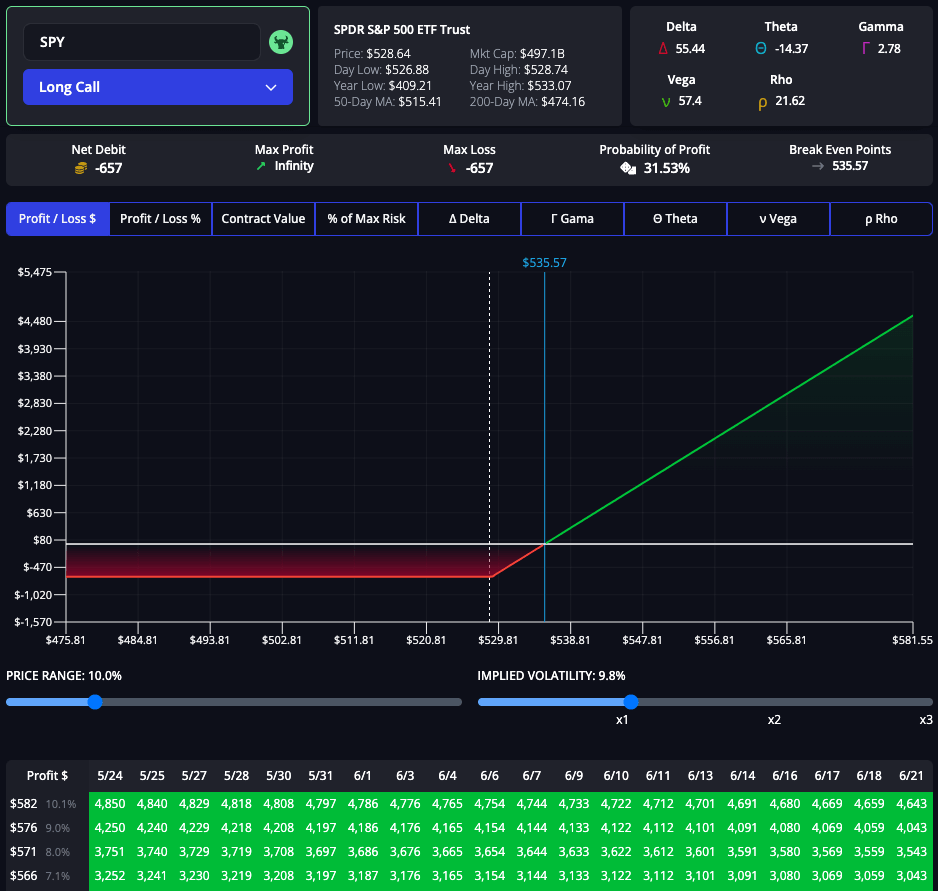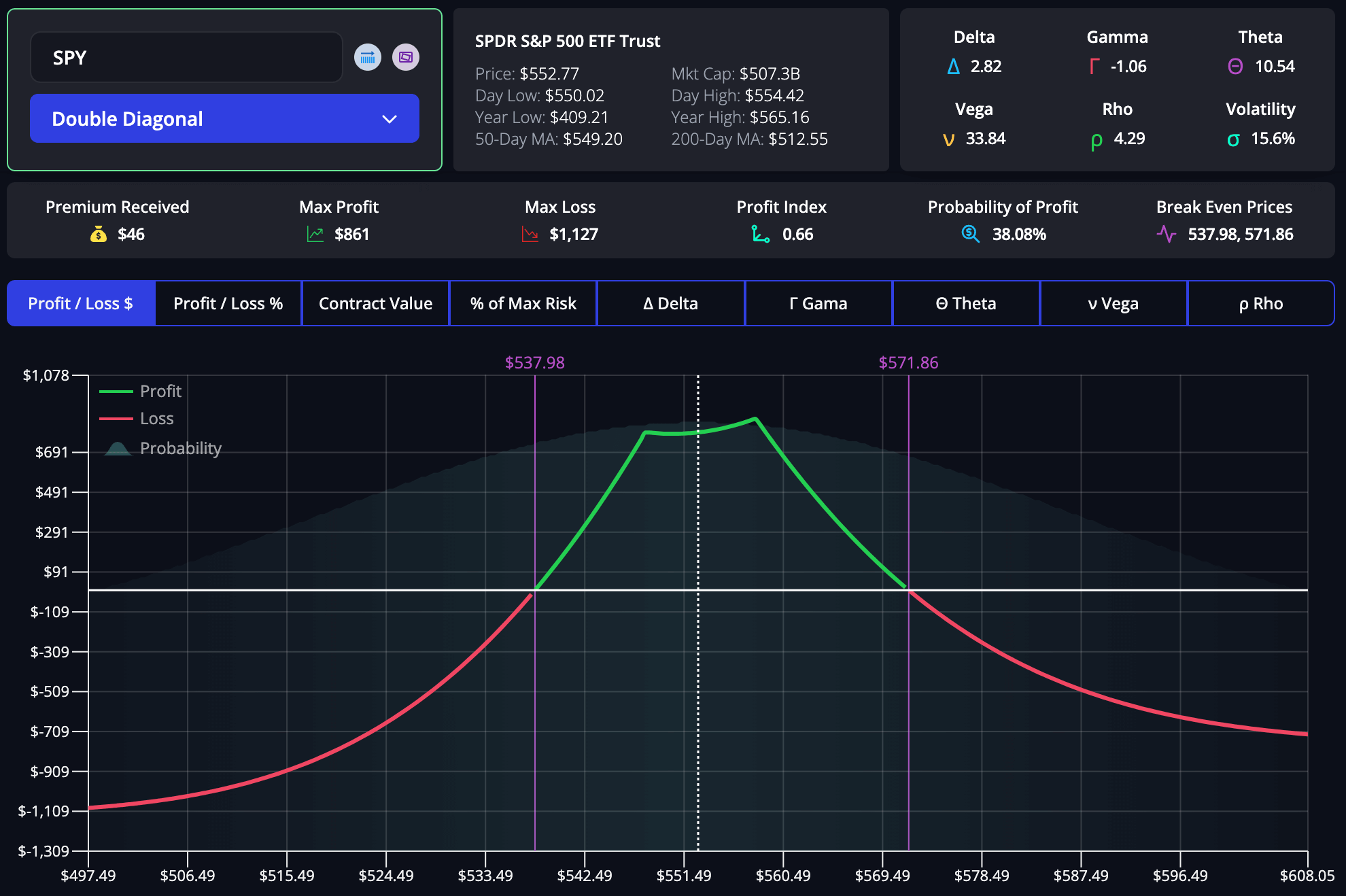Ultimate Guide to Options Trading Psychology

Key Takeaways
- Emotional Discipline: Manage fear and greed with research-based strategies and real-life examples.
- Winning Mindset: Build confidence and maintain discipline with a structured trading plan and regular review.
- Cognitive Biases: Recognize and mitigate biases like confirmation and overconfidence with practical techniques.
- Resilience Strategies: Maintain psychological resilience with proven routines, community support, and mindfulness practices.
- Data-Driven Tools: Use InsiderFinance tools to make informed, unemotional trading decisions.
Why It Matters
- Reduce Emotional Biases: Make rational, informed decisions based on data, not emotions.
- Improve Performance: Enhance trading strategies with comprehensive analysis and real-time insights.
- Achieve Consistency: Maintain a disciplined approach for more stable and profitable trading outcomes.
Are your trading decisions driven by data or emotions? Mastering the psychology of options trading could be the difference between consistent profits and costly mistakes.
Understanding the psychology behind options trading is crucial for achieving long-term success. Emotions like fear and greed can significantly influence trading decisions, often leading to irrational behavior and poor outcomes.
This comprehensive guide delves into the psychological aspects of options trading, offering you strategies to maintain a disciplined and rational approach.
By leveraging these insights and advanced tools, you can transform your trading mindset, make data-driven decisions, and ultimately achieve greater success in the volatile world of options trading.
The Importance of Trading Psychology

Emotional Discipline
Emotional discipline is the cornerstone of successful trading. The volatile nature of options trading can trigger strong emotional reactions, such as fear and greed, which can cloud judgment and lead to impulsive decisions.
Fear
Fear can cause traders to exit positions prematurely, missing out on potential gains. To manage fear, it's essential to have a well-defined risk management strategy. Research suggests that traders who set stop-loss orders and adhere to them are less likely to make emotionally-driven decisions.
- A trader who consistently experiences fear when the market dips sets a predefined stop-loss level and practices sticking to it. Over time, this trader learns to trust the strategy and reacts less emotionally to market fluctuations.
Greed
Greed can push traders to take excessive risks, hoping for larger profits. Implementing strict profit-taking rules, such as setting target prices and sticking to them, can help mitigate the impact of greed.
- A trader implements a rule to sell a portion of their position once a profit target is reached. This disciplined approach ensures that gains are realized and prevents the temptation to hold out for unrealistic returns.
Stress Management
Stress is inherent in options trading due to the constant need to make quick decisions and the financial stakes involved. Effective stress management techniques can help maintain mental clarity and reduce the impact of stress on trading performance.
- A trader incorporates daily mindfulness meditation practices, which helps them stay calm and focused during trading hours. This practice reduces their overall anxiety and enhances decision-making under pressure.
Research-Based Strategies for Emotional Discipline
- Cognitive-Behavioral Therapy (CBT): CBT techniques can help traders recognize and alter negative thought patterns. For example, reframing negative thoughts about losses into learning opportunities can reduce emotional stress.
- Mindfulness Meditation: Studies have shown that mindfulness meditation can improve emotional regulation and decision-making. Practicing mindfulness helps traders stay focused and calm, reducing anxiety and improving decision-making, even during market volatility.
- Visualization Techniques: Visualizing successful trades and outcomes can boost confidence and reduce anxiety. This technique involves mentally rehearsing each step of a trade, which prepares the mind to handle real situations with composure.
- Regular Exercise: Physical activity is proven to reduce stress and improve overall well-being, contributing to better trading performance.
- Adequate Rest: Ensuring sufficient sleep and breaks during trading can prevent burnout and maintain optimal cognitive function.
HIGH POTENTIAL TRADES SENT DIRECTLY TO YOUR INBOX
Add your email to receive our free daily newsletter. No spam, unsubscribe anytime.
Developing a Winning Trading Mindset

Confidence and Realistic Expectations
Building confidence and setting realistic expectations are critical components of a winning trading mindset. Confidence stems from a thorough understanding of the market and a well-tested trading strategy, while realistic expectations help manage disappointment and keep trading goals achievable.
Strategies for Building Confidence
Education:
Continuously learning about options trading, market trends, and strategies can boost confidence. Attending webinars, reading books, and following market experts are excellent ways to enhance knowledge.
- Example: A trader subscribes to several financial newsletters, attends monthly webinars by industry experts, and reads the latest books on options trading strategies. This ongoing education helps them stay updated on market trends and refine their trading techniques.
Practice:
Using paper trading or simulators to practice strategies without financial risk helps build confidence. Simulated trading allows for experimentation with different strategies and learning from mistakes in a risk-free environment.
- Example: A trader spends two months using a paper trading account to test various options strategies, such as straddles and strangles, before committing real money. This practice helps them understand the mechanics and potential outcomes of each strategy without risking capital.
Review:
Regularly reviewing past trades to understand successes and mistakes fosters a deeper understanding of your trading approach. Analyzing what went right or wrong helps refine strategies and build confidence.
- Example: A trader keeps a detailed trading journal where they record the rationale behind each trade, the outcome, and any emotional reactions. By reviewing this journal weekly, they identify patterns and make adjustments to their strategy, leading to more informed and confident trading decisions.
Patience and Discipline
Patience and discipline are essential traits for successful traders. Markets can be unpredictable, and waiting for the right opportunities often yields better results than frequent, impulsive trades.
Techniques to Cultivate Patience and Discipline
Trading Plan:
Develop a comprehensive trading plan that outlines entry and exit criteria, risk management rules, and strategy specifics. Sticking to this plan helps maintain discipline and avoid impulsive decisions.
- Example: A trader creates a detailed plan that includes specific entry signals based on technical indicators, predefined stop-loss levels, and profit targets. By following this plan, the trader avoids making impulsive decisions based on market noise and sticks to their tested strategy.
Journaling:
Keeping a trading journal to record and review trades helps reinforce disciplined behavior and provides insights into trading patterns. By analyzing past trades, traders can identify areas for improvement and stay committed to their plan.
- Example: A trader maintains a daily journal where they document each trade, including the setup, execution, and outcome. They also note their emotional state and any external factors influencing their decisions. Reviewing this journal weekly helps them identify emotional biases and refine their trading strategies, promoting disciplined trading habits.
The Role of Cognitive Biases in Trading

Cognitive biases can lead to systematic errors in trading decisions. Understanding and mitigating these biases is crucial for maintaining a rational approach.
Confirmation Bias
Confirmation bias involves seeking out information that confirms pre-existing beliefs and ignoring contradictory evidence. This bias can lead traders to make decisions based on incomplete or biased information.
Mitigation Techniques:
To combat confirmation bias, traders should actively seek out information that challenges their views. Using tools like financial news aggregators can provide a balanced view of market sentiment.
- Example: A trader sets up alerts for news on both bullish and bearish views of a stock they own. By reading diverse opinions, they can make more informed decisions and avoid confirmation bias.
Anchoring Bias
Anchoring bias occurs when traders rely too heavily on the first piece of information they encounter (the anchor) when making decisions. This can lead to inappropriate reactions to market movements.
Mitigation Techniques:
Traders should set their own criteria for trades based on thorough analysis rather than initial impressions. Regularly reviewing and updating these criteria can help avoid anchoring.
- Example: A trader initially hears that a stock is undervalued at $50. To avoid anchoring, they conduct a comprehensive analysis, considering current market conditions and updated financial reports, before making a trading decision.
Overconfidence Bias
Overconfidence bias makes traders believe they have better skills or knowledge than they actually do, leading to excessive risk-taking and potential losses.
Mitigation Techniques:
Regular self-assessment and performance reviews can help traders stay grounded. Using trading journals to objectively review past trades can highlight areas of improvement.
- Example: A trader reviews their trading journal monthly to assess the accuracy of their predictions and strategies. This practice helps them stay realistic about their skills and make adjustments as needed.
Tools to Mitigate Cognitive Biases
Decision Support Systems:
Tools that provide comprehensive data analysis and scenario testing can help traders make more informed decisions.
- Example: Using an options profit calculator to evaluate different scenarios before making a trade can provide a more balanced perspective.
Diverse Information Sources:
Utilizing multiple sources of financial news and analysis ensures exposure to a wide range of viewpoints.
- Example: Subscribing to various financial news platforms and analysis tools helps a trader avoid reliance on a single information source, reducing the risk of biases.
Strategies to Maintain Psychological Resilience

Maintaining psychological resilience is crucial for long-term trading success. Traders need strategies to manage stress, stay disciplined, and remain focused.
Developing a Routine
Having a structured routine can help traders maintain psychological resilience. This routine should include regular market analysis, strategy reviews, and self-assessment sessions.
Successful traders often follow specific daily routines that include pre-market preparation, ongoing market monitoring, and post-market reviews.
- Example: A trader starts each day with a pre-market analysis, reviewing overnight news and setting up potential trades. During the trading day, they follow a schedule of monitoring key positions and adjusting strategies as needed. At the end of the day, they conduct a post-market review to evaluate the day's performance and update their trading journal.
Seeking Support
Seeking support from other traders or professional advisors can provide valuable insights and emotional support, enhancing trading resilience.
Trading Communities:
Joining trading communities or forums allows for the exchange of ideas and support.
- Example: A trader participates in an online trading forum where they can discuss strategies, share experiences, and get feedback from peers. This community support helps them stay motivated and informed.
Professional Advisors:
Consulting with professional trading advisors can provide expert guidance and support.
- Example: A trader regularly meets with a professional financial advisor to review their portfolio and get personalized advice. This professional support helps them stay on track with their long-term trading goals.
Utilizing Tools to Enhance Trading Psychology

In the fast-paced world of options trading, emotions like fear and greed can cloud judgment and lead to suboptimal decisions. Using data-driven tools is essential for mitigating these emotional biases and fostering a disciplined, objective approach to trading.
By leveraging high-quality tools like those from InsiderFinance, traders can base their decisions on solid data rather than gut feelings, improving their trading psychology and overall performance.
Benefits of Using InsiderFinance Tools
Options Profit Calculator:
- Profit and Loss Projections: Provides detailed profit and loss projections for various market scenarios, assisting in rational decision-making.
- Greeks Analysis: Helps traders understand how different factors impact their options positions.
Options Flow:
- Real-Time Data: Tracks large options trades, highlighting significant market moves.
- Sentiment Analysis: Gauges market sentiment from large trades.
Dark Pool Data:
- Large Trade Tracking: Provides insights into large, undisclosed trades by institutional investors.
- Market Impact Analysis: Evaluates the potential impact of dark pool trades on market movements.
Technical Analysis:
- Advanced Charting: Offers detailed charting tools and technical indicators.
- Trend Identification: Helps traders identify market trends and potential reversal points.
Market News Analyzed for Sentiment:
- Sentiment Scoring: Assigns sentiment scores to market news, indicating overall positivity or negativity.
- Comprehensive News Coverage: Provides a holistic view of market sentiment.
Combining Tools for Enhanced Trading Decisions
Using these tools in combination provides a comprehensive approach to trading, helping traders make unemotional, data-driven decisions.
- A trader begins their day by reviewing options flow and dark pool data to spot significant market moves and institutional trades. They notice a large volume of bullish options trades in a tech stock and substantial dark pool activity suggesting institutional buying. To confirm the trend, the trader uses technical analysis tools to identify a bullish pattern forming in the stock’s price chart.
- Next, they use the InsiderFinance Options Profit Calculator to evaluate a potential bull call spread strategy on the identified tech stock. The calculator provides detailed projections, including potential profits and losses under various scenarios and the impact of volatility and time decay.
- Throughout the day, the trader monitors market news sentiment to stay updated on any developments that could impact their positions. Positive sentiment around upcoming earnings reports reinforces their decision to proceed with the bull call spread.
- By leveraging this suite of tools, the trader makes a well-informed, data-driven decision, reducing the influence of emotional biases. This comprehensive approach not only enhances their trading psychology but also increases their chances of achieving better trading outcomes.
Incorporating these tools into your trading routine can significantly improve your decision-making process, helping you stay disciplined, reduce emotional reactions, and ultimately achieve greater success in options trading.
Transform Your Trading with Psychological Mastery
Mastering the psychology of options trading is essential for long-term success. By understanding and managing emotions such as fear and greed, recognizing and mitigating cognitive biases, and maintaining psychological resilience, traders can make more rational and disciplined decisions.
Leveraging advanced tools like the InsiderFinance suite can further enhance your trading strategy, ensuring that decisions are data-driven and free from emotional biases.
Implementing these psychological strategies and utilizing data-driven tools will not only improve your trading performance but also lead to more consistent and profitable outcomes. Embrace the power of trading psychology and transform your approach to achieve your financial goals with confidence and clarity.
HIGH POTENTIAL TRADES SENT DIRECTLY TO YOUR INBOX
Add your email to receive our free daily newsletter. No spam, unsubscribe anytime.
FAQs
What is trading psychology?
Trading psychology involves understanding and managing emotions, biases, and mental strategies to make more disciplined and rational trading decisions.
How can fear and greed impact my trading decisions?
Fear can cause premature exits from positions, while greed can lead to excessive risk-taking. Both can result in suboptimal trading outcomes.
What are some effective techniques to manage fear in trading?
Setting predefined stop-loss levels, practicing mindfulness meditation, and using a detailed trading plan can help manage fear effectively.
How can I develop a winning trading mindset?
Continuously educate yourself, practice with simulators, review past trades, and set realistic expectations to build confidence and discipline.
What are cognitive biases, and how do they affect trading?
Cognitive biases like confirmation bias and overconfidence bias can lead to systematic errors in trading decisions, often resulting in poor outcomes.
What tools can help mitigate cognitive biases in trading?
Using decision support systems, diverse information sources, and maintaining a trading journal can help mitigate cognitive biases.
Why is psychological resilience important in trading?
Psychological resilience helps traders manage stress, stay disciplined, and maintain focus, which are crucial for consistent and successful trading.
What are some strategies to maintain psychological resilience?
Developing a structured routine, seeking support from trading communities, and incorporating mindfulness practices can enhance psychological resilience.
How can data-driven tools improve my trading psychology?
Tools like options profit calculators, options flow data, dark pool data, and technical analysis provide objective data that helps traders make informed, unemotional decisions.
What benefits do InsiderFinance tools offer for options trading?
InsiderFinance tools offer real-time data, sentiment analysis, and comprehensive market insights, helping traders make data-driven, disciplined trading decisions.








